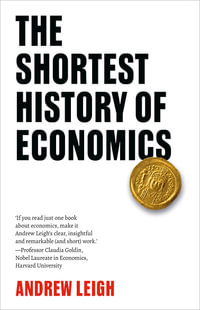| Theoretical Framework | |
| Introduction and examples | |
| The representation of a game in extensive form | |
| The representation of a game in strategic form | |
| The mixed extension of a game | |
| Mixed and behavioral strategies | |
| Representation in coalition form | |
| Summary | |
| Exercises | |
| Strategic-Form Analysis: Theory | |
| Dominance and iterative dominance | |
| Nash equilibrium | |
| Zero-sum bilateral games | |
| Nash equilibrium: formal existence results | |
| Strong and coalition-proof equilibrium | |
| Correlated equilibrium | |
| Rationalizability | |
| Summary | |
| Exercises | |
| Strategic-Form Analysis: Applications | |
| Oligopoly (I): static models | |
| Mechanism design (I): efficient allocation of public goods | |
| Mechanism design (II): Nash implementation | |
| Markets (I): macroeconomic coordination failures | |
| Summary | |
| Exercises | |
| Refinements of Nash Equilibrium: Theory | |
| Introduction | |
| Refinements excluding 'incredible threats': examples | |
| Subgame-perfect equilibrium | |
| Weak-perfect Bayesian equilibrium | |
| Refinements excluding 'untenable beliefs': examples | |
| Sequential equilibrium | |
| Perfect and proper equilibria | |
| Strategic-form refinements | |
| Summary | |
| Exercises | |
| Refinements of Nash Equilibrium: Applications | |
| Oligopoly (II): sequential moves | |
| Markets (II): decentralized price formation | |
| Oligopoly (III): differentiated products | |
| Mechanism design (III): efficient allocation of an indivisible object | |
| Summary | |
| Exercises | |
| Incomplete Information: Theory | |
| Introduction and examples | |
| Bayesian games | |
| Bayes-Nash equilibrium | |
| Signalling games | |
| Mixed strategies revisited: a purification approach | |
| Forward induction | |
| Summary | |
| Exercises | |
| Incomplete Information: Applications | |
| Markets (III): signalling in the labor market | |
| Markets (IV): insurance markets and adverse selection | |
| Mechanism design (IV): one-sided auctions | |
| Mechanism design (V): buyer-seller trade | |
| Summary | |
| Exercises | |
| Repeated Interaction: Theory | |
| Introduction and examples | |
| Repeated games: basic theoretical framework | |
| Folk theorems: Nash equilibrium | |
| Reputation and 'irrationality': informal discussion | |
| Folk theorems: subgame=perfect equilibrium | |
| Reputation and 'irrationality': formal analysis | |
| Summary | |
| Exercises | |
| Repeated Interaction: Applications | |
| Oligopoly (IV): intertemporal collusion in a Cournot scenario | |
| Oligopoly (V): intertemporal collusion in a Bertrand scenario | |
| Markets (V): efficiency, wages and unemployment | |
| Summary | |
| Exercises | |
| Evolutionary Foundations of Equilibrium | |
| Introduction | |
| Static analysis | |
| Basic dynamic analysis | |
| Evolution in social environments | |
| The evolution of cooperation: an example | |
| Summary | |
| Exercises | |
| Learning to Play | |
| Introduction | |
| Reinforcement learning | |
| Static perceptions and Nash equilibrium | |
| Memory, expectations and foresight | |
| Summary | |
| Exercises | |
| Social Learning and Equilibrium Selection | |
| Introduction | |
| Evolutionary games: theoretical framework | |
| Evolutionary games: alternative scenarios | |
| Stochastic stability and equilibrium selection | |
| Experimental evidence | |
| Perturbed Markov processes: basic concepts and techniques | |
| Reinforcement learning with flexible aspirations | |
| Summary | |
| Exercises | |
| Table of Contents provided by Publisher. All Rights Reserved. |

























